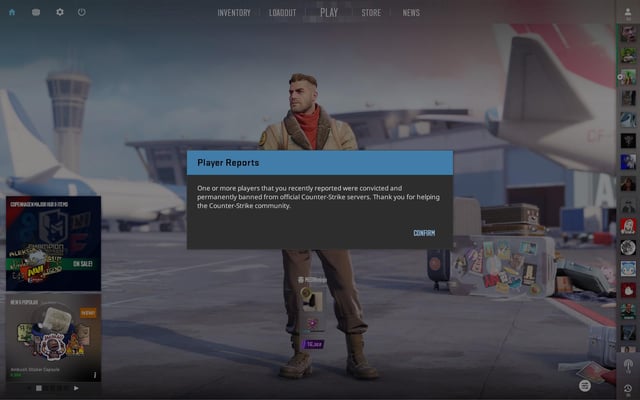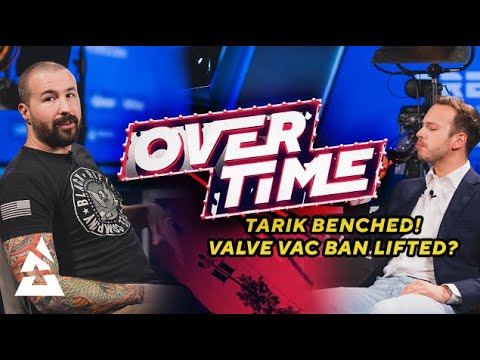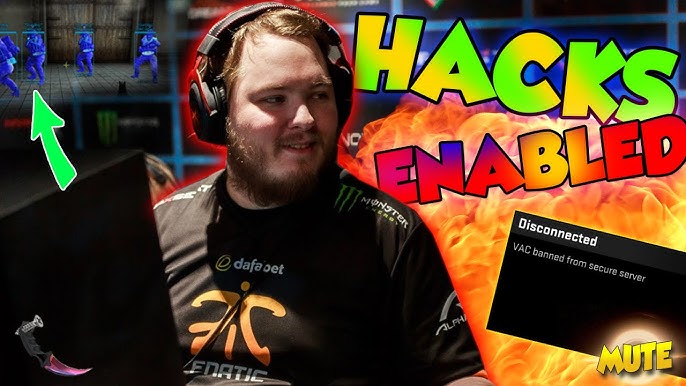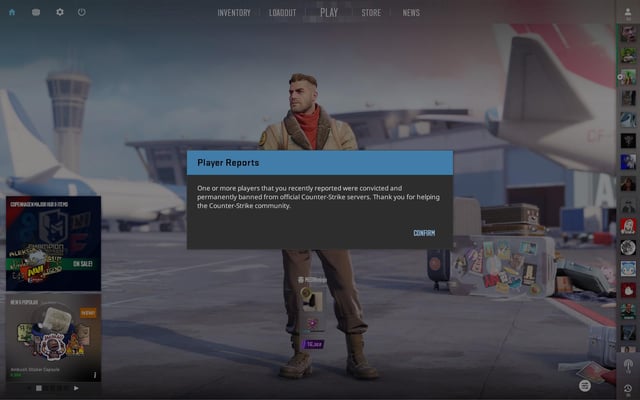Launders VAC Ban: Is Valve's Anti-Cheat System Failing Counter-Strike?

Alright, alright, listen up, folks. SourceSavvy here, your friendly neighborhood Counter-Strike veteran, trickshot enthusiast, and video editor since way back in '06. We’re talking Counter-Strike: Source roots, baby! Now, I usually keep my head buried in timelines, crafting those sweet edits you (hopefully) enjoy over at youtube.com/SourceSavvyEdits (hypothetical link, remember!), but something’s got me riled up, and I know it’s got you riled up too: the Launders VAC ban and the dumpster fire of a Counter-Strike VAC controversy it has ignited. This isn't just another ban; it's reigniting the age-old debate about Valve anti-cheat criticism and whether VAC is truly effective – or if it’s just a ticking time bomb waiting to go off, potentially ruining innocent players’ careers. Let's dive deep, shall we?
Launders VAC Ban: What Happened?
The situation's straightforward: Popular Counter-Strike personality Launders received a VAC ban, seemingly out of the blue. Of course, the instant reaction was disbelief. Launders has been a trusted voice in the community for ages. He's known for his game knowledge and insights, so the idea of him cheating just…doesn't compute for most of us. But a VAC ban is a VAC ban, right? Or is it? This brings us to the core problem: Valve's utter silence.
The Community Erupts: Launders Ban Community Reaction
The Launders ban community reaction has been nothing short of explosive. Forums are flooded, Twitter's a warzone, and petitions for an unban are racking up signatures faster than I can render a 1080p trickshot compilation. You've got everything: meme-lords going wild, conspiracy theories popping up left and right, and, of course, the ever-present "he's definitely cheating" crowd.
Some prominent figures have weighed in, too. DonHaci, never one to mince words, took to Twitter (or X, whatever we're calling it these days) to express his skepticism, questioning the infallibility of VAC and demanding transparency. Even pros like s1mple and Zywoo, while understandably cautious, have voiced their surprise and concern, highlighting the impact this has on the Counter-Strike scene’s trust. The Launders ban community reaction is one of confusion, frustration, and a desperate plea for Valve to actually say something.
Why the Outrage?
Simple: it's the lack of communication. Valve's silence fuels the fire. Is this a genuine cheater caught red-handed? Or is it another case of a VAC ban false positive risk ruining someone's reputation and livelihood? We just don't know. This ambiguity is what eats at the community and erodes trust in Valve's anti-cheat system. People are asking "Did Launders use cheats?" and all they are getting in return is an deafening silence.
The Effectiveness of VAC: Valve VAC system effectiveness
Alright, let's get real about the Valve VAC system effectiveness. VAC, or Valve Anti-Cheat, has been around for ages. It's supposed to be this automated system that detects cheats and bans players who use them. But here's the thing: it's not perfect. Not by a long shot.

A History of Controversy
VAC's history is riddled with controversies. False positives, delayed bans, and a general feeling that it's always a step behind the cheat developers. We've seen it time and time again: a wave of new cheats hits the scene, VAC struggles to keep up, and then, months later, a ban wave hits. But by then, the damage is done.
The system operates largely in the dark, making it difficult to assess how well it actually works. One of the core questions we need answered is "How does Valve VAC work?" While the specifics are a secret for obvious reasons, the lack of transparency makes it hard to have faith in the system.
VACnet and Trusted Mode
Valve has tried to improve things with VACnet, a system that uses machine learning to analyze player behavior and identify potential cheaters. And with Counter-Strike 2, they introduced Trusted Mode, which aims to prevent untrusted software from interfering with the game. But these measures haven't solved the problem. Cheats still exist, and false positives still happen. And these changes have also introduced "Counter-Strike VAC trusted mode problems" for some users, adding another layer of complexity to the situation.
Is VAC Infallible?
Absolutely not. Anyone who tells you VAC is 100% accurate is either lying or delusional. False positives do happen, as do delayed bans. The reality is that Valve VAC system effectiveness is always going to be a cat-and-mouse game. The cheat developers create new cheats, and Valve tries to detect them. It's a constant arms race, and unfortunately, sometimes innocent players get caught in the crossfire. And it's important to understand "What are alternative anti-cheat systems for Counter-Strike?" because it's clear that the current solution is not sufficient.
The Need for Transparency: Valve Anti-Cheat Criticism

This is where my biggest frustration lies. Valve's Communication – or lack thereof. In situations like the Launders ban, silence is not golden. It's infuriating. The Valve Anti-Cheat Criticism is not about hating Valve; it's about wanting them to do better. We need transparency. We need explanations. We need a system that's not shrouded in mystery.
What's "Valve's response to Launders VAC ban?" Nothing! Nada! Zip! The community is left to speculate, and that leads to even more distrust and anger. The question "Why was Launders VAC banned?" remains unanswered, and that's simply unacceptable.
The VAC Ban Appeal Process
Speaking of transparency, let's talk about the VAC ban appeal process. Oh, wait, there isn't one! Once you're VAC banned, you're done. No appeals, no second chances. It's a death sentence for your Counter-Strike career.
The current system is far from ideal, especially given the potential for "VAC ban false positive risk". We need a fair and transparent appeals process that allows players to present their case and potentially overturn wrongful bans. There should be a way to answer the question "How can I appeal a VAC ban?". Right now, the answer is, unfortunately, you can't.
What Happens When You Get VAC Banned?
For those who aren't familiar, let's quickly cover the consequences of getting VAC banned. Here's "What happens when you get VAC banned?"
- You lose access to the game(s) you were banned in.
- You can't trade or sell items from those games.
- Your account is flagged as a cheater.
- Your reputation takes a massive hit.
Basically, it's game over. And that's why it's so important that VAC is accurate and fair.
Addressing the Concerns: Moving Forward

So, where do we go from here? How do we improve the situation and address the concerns surrounding VAC? Here are a few suggestions:
- Transparency: Valve needs to be more transparent about how VAC works and why bans are issued.
- Appeals Process: Implement a fair and transparent appeals process for VAC bans.
- Improved Detection: Continue to improve VAC's cheat detection capabilities and reduce false positives. One factor would be to consider the "VAC ban appeal success rate Counter-Strike".
- Community Involvement: Engage with the Counter-Strike community to gather feedback and improve the anti-cheat system.
- Communication: Communicate with players about VAC bans, even if it's just a brief explanation. A clear "Valve Statement" would be beneficial.
Alternative Anti-Cheat Solutions
One of the things we, as a community, need to start exploring is "Counter-Strike cheating solutions". The question of "What are alternative anti-cheat systems for Counter-Strike?" needs to be discussed, explored and maybe even implemented.
There are other anti-cheat systems out there that are arguably more effective than VAC. FACEIT, for example, uses a client-side anti-cheat that's much more aggressive and harder to bypass. While it's not perfect either, many people argue it's a step in the right direction.
Conclusion: Valve, We Need Answers!
The Launders VAC ban is more than just an isolated incident. It's a symptom of a larger problem: a lack of transparency and trust in Valve's anti-cheat system. "Is Launders VAC ban justified Counter-Strike?" Right now we don't know. Valve needs to step up, communicate with the community, and address these concerns. The future of Counter-Strike depends on it.
What are your thoughts? Let me know in the comments below. And don't forget to check out my latest trickshot compilation over at youtube.com/SourceSavvyEdits (still hypothetical!). And consider reading about "How to avoid VAC bans in Counter-Strike honestly" to avoid any issues with the anti-cheat system.
Until next time, keep fragging (fairly!),
- SourceSavvy